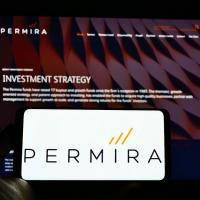PARTNER CONTENT
Lionpoint is a global consulting firm focused on delivering operational transformation and enabling technology solutions to the alternative investment industry, Senior Consultant Yang Storronningen chats to Private Equity Wire about some of the current opportunities and challenges facing alt asset managers and in particular obstacles specific to emerging managers…
What are the primary challenges your firm and your clients are facing and what is critical to these being overcome?
A challenge that will be felt across more traditional PE/alternative asset managers will be the targeting of new pools of capital, namely private wealth channels, in a sustainable way. Management of new clients’ changing expectations, aligning it with the existing internal infrastructure and ensuring the right resources and technology is in place will be key to sustainable growth.
There will also be an additional layer to navigate when it comes to structuring vehicles; we are seeing an increasing number of vendors offering structuring and technology solutions targeting a range of distribution models and jurisdictions.
Ultimately, what sits behind these challenges will be an exercise in data cleanup, ongoing management, governance and quality, especially integration of data across systems for the purposes of reporting, both directly to clients and to third party platforms and distributors.
Are there upcoming regulatory changes which could affect your business and that of your clients?
One primary regulatory change that has been converging with the wider market trend of retailisation of private assets has been the ELTIF regulations and the equivalent LTAF rules in the UK. The expectation is that as the new ELTIF 2.0 regime that will become effective January 2024 will widen the scope of assets eligible into an ELTIF, create clarity on investor eligibility and allows for increased borrowing limits. Similarly, the FCA finalised their amendments to the LTAF rules over the summer, making the LTAF more retail accessible by classifying LTAFs as RMMIs, requirements around investment allocations on liquid vs illiquid, and clarity around disclosure and value assessment requirements.
The expected impact of these regulatory changes for a manager launching these types of products is yet to be seen, but the expectation is that additional challenges will arise around resourcing in operational teams, including reporting, compliance and oversight. Additionally, we expect there to be a need for both internal and external education on the unique product features and impact to investors.
Are there obstacles which are specific to emerging managers and how have you been working around them?
One key priority for emerging managers will be partnering with the right vendors and outsourcing partners. In particular, for any systems used it is crucial to ensure the managers’ priorities are included on the vendor roadmap, ensuring the systems selected are flexible enough to meet current needs whilst simultaneously being suitable to scale with the business. To work around this, assessments of vendors will have to be done in a way that ensures product, ongoing development, implementation and ongoing support models aligns with the managers’ expectations, overall strategic architecture, schedule and budget.
Another potential obstacle for emerging managers will be the geographical stretch and the number of jurisdictions the manager can market into due to limitations around local knowledge of the investor market, local resources and internal resource to tackle different regulatory regimes. One solution to work around this is again selection of the relevant outsourcing partners, around key regulatory functions such as the AIFM or MLRO, or around key strategic and operational roles by partnering with distribution, placement or structuring firms.







